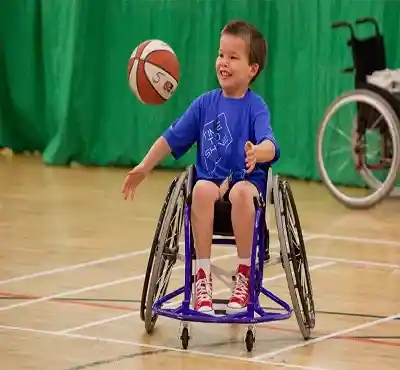What Is A Child Benefit For Disability?
If you have a child or children, you want the very best for them. You desire nothing more than to see your child grow up to become a healthy, happy adult. Unfortunately, that is not always the case.
Some children struggle. Some children will go through life with significant disabilities. It is important to understand that SSI Benefits for Disabled Child are available so that you are prepared to take the appropriate steps if necessary.
Parents and siblings must adapt, which can impact every aspect of their lives. There are numerous medical costs. Therapy may be required. Accommodations and special home adaptations are often necessary. Disabling conditions can break both a parent’s heart and wallet. This is why disability benefits are so important.
The Social Security Administration (SSA) was created to support those with financial need. The SSA is an extensive federal agency that provides a variety of assistance to people. Children who are struggling with disabilities are certainly in need and may be eligible to receive assistance.
That’s why the SSA has provided specific resources for these children. Caregivers, representatives, and parents of children younger than age 18 can help. By consulting the SSA, these important child guardians may be able to get their children the benefits they deserve.
Learning More About A Child Disability Benefit
Children with disabilities are often eligible for Supplemental Security Income (SSI) payments. Even adults can qualify for such benefits. If a current adult became disabled before age 22, that adult could receive Social Security Disability Insurance (SSDI) benefits.
The SSDI benefits are paid through a parent’s Social Security earnings record, though they are actually deemed children’s benefits. Although SSDI is essential, the SSI application is one of the most common applications completed for disabled children.

When completing the required forms, applicants should be wary of the criteria. Not all children will qualify, even if those children are disabled. The SSA will also look at financial and vocational qualifications. Be it SSDI benefits for children, or SSI benefits, the Social Security Administration will check every detail before approving an application.
A reputable Children’s Benefits Lawyer will understand the administrative process well. With an attorney’s help, an applicant can significantly improve the likelihood of being approved for child disability benefits.
It is essential to recognize the various requirements for a child’s application for Supplemental Security Income (SSI) benefits.
The SSI Disability Application For Child Beneficiaries
Supplemental Security Income (SSI) delivers monthly payments to beneficiaries of low income and limited means. These recipients must also be: (1) aged 65 or older, or (2) blind, or (3) disabled. A child under the age of 18 can qualify if he or she has a medical condition or group of conditions that the SSA recognizes as disabling.
Income and resources for the child must also qualify within the SSA parameters. Certain states increase these SSI for children payments with additional assistance. A local Child Benefit Office can explain these pertinent facts in detail. Applicants should understand these things when applying for social security benefits for children.
How to claim child benefits?
Before applying, a parent or guardian should review the “Child Disability Starter Kit.” This resource will address typical concerns about applying for disability benefits. It also uses a worksheet to organize standard information required for applications.
If the applicant finds that the child generally qualifies, the applicant can then contact the Social Security Administration (SSA). The applicant can choose to meet an agent in-person or call toll-free at 1-800-772-1213. This step will help determine if the applicant’s child qualifies within the income/resource requirements.
The applicant should then complete an online Child Disability Report. This form is important because it fully expands upon the child’s disabling condition(s). The form will also permit medical professionals to provide SSA information regarding the child’s disability.
All of this information is crucial in helping the SSA decide on the child disability claim. The SSA will guide applicants through all necessary next steps.
Pursuing Social Security Disability Child Benefits
 Parents and guardians must understand that SSI qualifying criteria are stringent for a reason. There are many other types of benefits, insurance, and assistance that a disabled child may receive. SSI disability for children, however, are different. These are based on both financial and medical needs.
Parents and guardians must understand that SSI qualifying criteria are stringent for a reason. There are many other types of benefits, insurance, and assistance that a disabled child may receive. SSI disability for children, however, are different. These are based on both financial and medical needs.
The SSA will consider all types of income and resources while determining social security disability benefits for children. These income and resources include those of the child and the family. This applies whether the child lives with the family or is away at school and occasionally returns to the family home. If the child’s income and resources, or the family’s, exceed the SSA limits, the child will be denied benefits. The SSA is very strict about its criteria.
The medical and financial criteria for a disabled child require that the child:
- Is not earning more than $1,220 a month as of 2019, if not blind. If blind, he or she cannot earn more than $2,040 monthly.
- Has a medical condition, or conditions, that cause “marked and severe functional limitations.”
- Has condition(s) that have been disabling, or are expected to be disabling, for at least 12 months; or the condition(s) are expected to be terminal.
The Social Security Administration can take as long as five months to make a determination about a disabled child, but that is not always the case. Certain disabling medical conditions may qualify a child for immediate SSI payments.
These conditions qualify for SSI payments for as long as 6 months, even as the SSA makes its formal determination. Such conditions include:
- Total blindness
- Total deafness
- Cerebral palsy
- Down syndrome
- Muscular dystrophy
- Severe intellectual disability
- HIV infections; and
- Extremely low birth weights
Once the child has begun receiving SSI payments, the SSA is required to review the child’s disabling conditions regularly. The SSA will address the child’s condition as often as every three years to determine if the condition has improved or is expected to improve.
Once the child becomes an adult at age 18, the SSA will use the adult set of medical and non-medical rules to approve and deny SSI disability payments.
Clearly, the process is complicated. If you have any questions, consult Khattar Law, PC immediately.